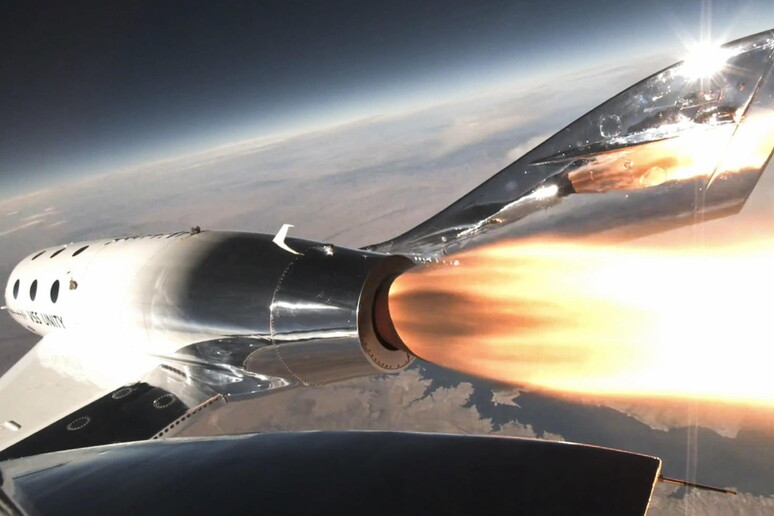Going from Italy to Japan in just
over an hour could become reality in just a few years.
And the starting point could be in Puglia, and specifically at
the spaceport of Grottaglie, in the province of Taranto, a
possible launch pad for suborbital space flights - one of the
many topics of discussion at the event 'Spaceports for the
future space economy' organized by the Puglia Region with the
participation of many international guests of honour at the
Italy Pavilion of Expo 2025 Osaka.
Opened by Elena Sgarbi, the Deputy Commissioner for Italy, and
organized in cooperation with the Aerospace Technology District,
the event pursued the objective of discussing the region's
strategic role in the development of Italy's and Europe's
autonomous access to space.
"This is the week dedicated to the mobility of the future at
Expo 2025 Osaka", recalled Giuseppe Acierno, the president and
CEO of DTA (Aerospace Technology District), and "there could be
no better choice than the Puglia region to be able to accompany
a relationship with the Japanese friends".
Puglia is the "frontier of innovation in the aerospace sector",
continued Acierno, stressing how the one in Grottaglie is "the
first and only spaceport in Italy".
He also highlighted that the region hosts the "first and only
test bed dedicated to the development of drones and the only
incubator of the European Space Agency present in the
Mezzogiorno (southern Italy), linked to the Aerospace Technology
District".
And the Italy Pavilion has also showcased many international
actors that have decided to invest in Puglia's project.
"We have worked with Italy, in particular with the Puglia
region, to implement a few ideas on how a spaceport can
contribute to the economy, not only by launching rockets, but
also with other activities - production, training, education",
stated George C. Nield, president of the Global Spaceport
Alliance.
In particular, in Italy, "I am enthusiastic about the
opportunity of point-to-point transit".
The concept is revolutionary: "We are talking about travelling
from one point of the Earth to another much more quickly than is
currently possible with conventional flights", stated Nield,
stressing how the technology to do it is "just behind the
corner".
Naoko Yamazaki, the CEO of the Space Port Japan Association and
a former astronaut with the Japan Aerospace Exploration Agency
(JAXA) agreed.
"We can probably exchange our lessons, what we teach and we can
cooperation at an educational level for young generations",
stated Yamazaki.
The concept of spaceports and more in general of space
industries is "so important to widen our potential to resolve
many problems on earth", added the former astronaut.
The spaceport in Puglia is unique, as proven by the fact that
there are just over 40 active spaceports worldwide, with a
significant number of new spaceports that are being built or
must be completed by 2030.
And while the United States are the world leaders for
spaceports, Europe and Japan are developing several commercial
spaceports to obtain a competitive advantage.
In Italy, the Italian government has designed the airport of
Grottaglie as the first Italian spaceport and Italy's civil
aviation authority ENAC has already approved the Regulation for
the construction and the activity of spaceports, taking a
fundamental step towards the promotion of a new strategic
segment of civil aviation.
The project of the futuristic spaceport of Grottaglie, which
will be built in the next three to four years, provides for one
hangar as well as a multifunctional building set to host a
museum, a research centre and a start-up incubator.
The event 'Spaceports fort the future space economy' was also
attended by Francesco Paolo Cannito, First councillor of the
Italian embassy in Japan, Giovanni Di Antonio, the director of
technological innovation at ENAC, Patrizio Summa, the director
of special projects and management control of Aeroporti di
Puglia Spa, Yoshinori Odagiri president and CEO of Space Cotan -
Hokkaido spaceport, and Shigeru Shimose Corporate officer, Space
One & Director, Spaceport Kii.
"Editorial initiative co-funded by the European Union for the
Puglia Region with resources of PR Puglia FESR - FSE+ 2021-2027"
ALL RIGHTS RESERVED © Copyright ANSA











